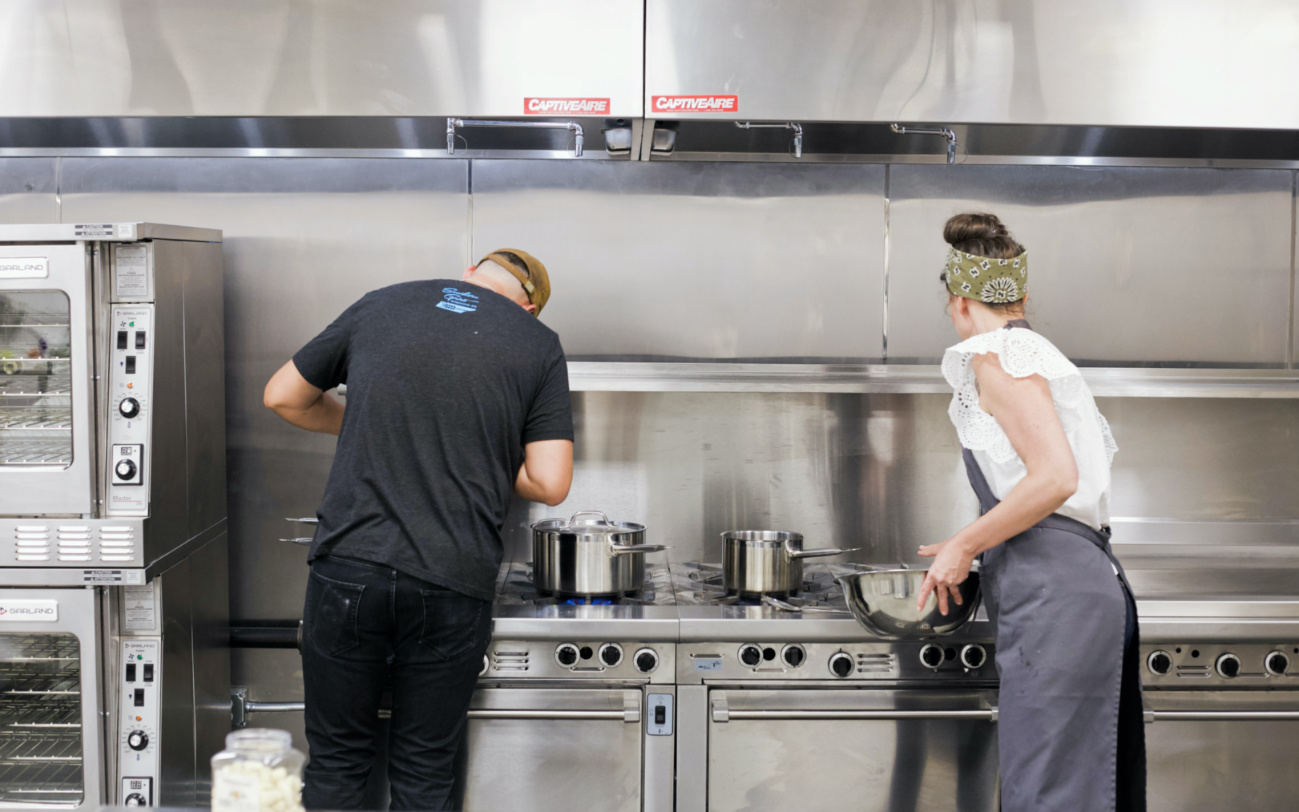Making delicious food is only one small part of running a successful food business. To start, you will also need to navigate forming a legal entity, gaining permits, securing insurance, growing a customer base, setting production, finding distribution channels, and more. Fortunately, you can join a kitchen incubator to jumpstart your journey.
Kitchen incubators exist to provide a place to start a business rooted in the culinary field, whether the business’s ultimate goal is to grow into a restaurant, bakery, or manufacturing facility. Using the resources that the kitchen provides, like commercial production space, permitting guidance, and sales avenues, a brand new business can start, make mistakes, pivot, grow their customer base, try new things, and eventually launch out into a brick-and-mortar location of their own.
Expanding The Types of Food Produced
Commercial kitchen spaces allow businesses to expand the types of food produced. In the state of Florida, people may legally produce a limited amount of “cottage food” out of their homes. However, this law excludes a broad range of products, such as refrigerated goods, meat products, sauces, and much, much more. More info about what can and cannot be produced under this law can be found in this guide from the Department of Agriculture and Consumer Services. In a commercial kitchen, businesses can earn an annual food permit, which lifts these barriers. Our member, Carol Stanley of Liamugia Tinctures and Teas received a permit in our commercial kitchen, which allowed her to produce the full spectrum of her menu, including savory items like kale tarts and pastry-wrapped chicken-pineapple patties.
Expanding Production Capacity
Second, commercial kitchen spaces provide expanded production capacity. If your home kitchen is anything like mine, there is only so much that one can do in a small space. With multiple ovens, plenty of prep tables, and industrial-grade equipment, commercial-grade spaces collapse the timelines necessary to prepare a large amount of product. Teresa Baxter of We Jammin’ was sterilizing jars for her fun + funky preserves just a few at a time on her home stovetop when she was under the cottage law. Now, she’s a licensed member of Catapult and she leverages the equipment at the kitchen to sanitize dozens of jars at a time with our tilt skillet. Find out what a tilt skillet looks likes + view our entire equipment list here. A commercial kitchen gives you space + equipment to take a budding food business from a home kitchen specialty to a production-ready operation.
Expanding Available Sales Levels
Finally, a commercial kitchen expands available sales avenues. Under the cottage law, food producers are only able to sell their product to a limited audience. When a business wants to ship products to customers or sell to fellow businesses, they must secure an annual food permit in a commercial kitchen space. Avni Tilvawala of One Good Knife sought a permit in at Catapult for her chef-curated spice blends. With a permit in hand, she can mail her signature blends to customers who live all over the country, she can partner with chefs at local restaurants to use her flavors in their creations, or sell her products out of our pop-up window. Without a clean, commercial space, these sales avenues are closed to food businesses.
So, if you are ready to expand the types of food, production capacity, and available sales avenues for your business, see if a commercial kitchen is the right fit for you.

